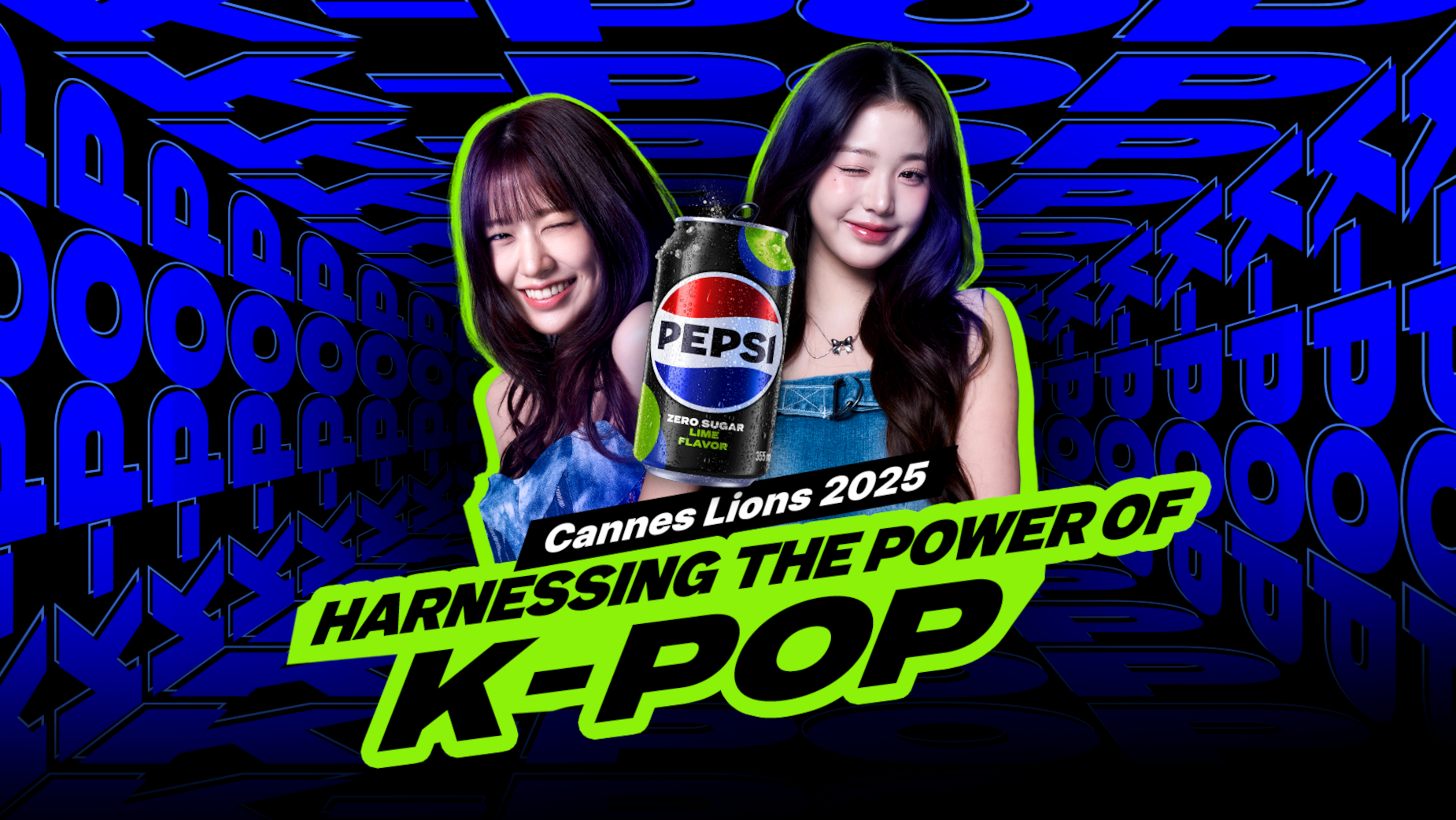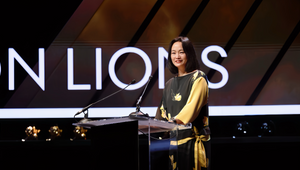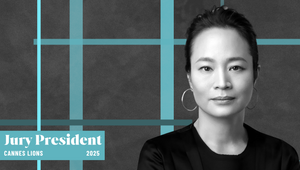
How Pepsi and Publicis Groupe Korea Are Harnessing the Power of K-Pop

At this year’s Cannes Lions, Publicis Groupe Korea hosted a session called ‘Harnessing the power of K-Pop’ to explain how marketers can tap into this $20 billion global movement. LBB caught up with Margaret Key, CEO of MSL APAC, part of Publicis Groupe APAC, Hyunjoo Seo, vice president and executive producer of Starship Entertainment and Yun Heon Lee, general manager, PepsiCo Korea for the lowdown…
Q> What can you tell us about Korea’s marketing sector. Have you witnessed any key shifts in recent years?
Margaret Key> When I first arrived in Seoul from the US in the late 1990s, most of my work focused on how to support multinationals entering Korea and wanting to engage with Korean consumers. Now, at Publicis Groupe Korea, we are seeing a shift, with a surge in requests for global clients wanting to work with Korean companies and celebrities, outside of Korea, across Asia and the world.
This results in part to Korea’s increase in soft power, and there is no better representation of this than K-pop. What started as catchy tunes and viral dance moves has rapidly evolved into a $20 billion global movement. It is an industry that’s not only reshaping entertainment but also how we consume content, connect with brands and express identity.
K-pop is no longer just a genre - it is a global lifestyle movement that fuses fashion, beauty, storytelling, and digital intimacy. In 24 hours, a K-pop music video can outperform Hollywood trailers, NFL ads, and even Netflix’s biggest premieres - combined. One BTS tweet generates more engagement than most Fortune 500 brand campaigns. For marketers, K-pop can offer incredible reach and engagement.
Q> Can you unpack the K-pop explosion from the perspective of a music producer? How are K-pop artists made?
Hyunjoo Seo> The K-pop industry is built on a long-term incubation system that focuses on the planning, training, and strategic development of artists over several years. This isn’t just a talent development pipeline, it represents the creation of a full-scale brand ecosystem.
In that sense, the K-pop system operates much more like a strategic marketing engine, where the artist is developed, packaged, and launched – much like a high-impact product or a brand.
Q> What kind of preparation happens before a K-pop artist debuts?
Hyunjoo Seo> The process begins with trainee selection through auditions, scouting, and street casting. Then, the trainees typically undergo three to five years of intensive training, which includes not only performance skills but ‘soft skills’ including media training, personal branding, and global etiquettes for fan interaction.
At Starship Entertainment, during this time we work to identify target audience segments, develop the group’s member composition and narrative, and determine the long-term brand image for the team and each member.
Q> What kind of promotional and branding strategies are deployed after a K-pop artist debuts?
Hyunjoo Seo> In K-pop, an artist’s debut represents the launch of a full-scale brand marketing campaign, with a multi-layered strategy that includes everything from music videos to variety show appearances and leveraging social media and global fandom platforms.
As fan interaction deepens, the strategy moves into physical fan engagement including global tours, fan meetings, and pop-up events. After the initial buzz, to ensure fan engagement doesn't taper off, we develop personalized engagement strategies using dedicated fan platforms like Dear U Bubble. On these platforms, members send personalised messages and respond directly to fans' questions and comments. This creates the feeling of an intimate, two-way relationship. Fans begin to see themselves not just as followers, but as emotional partners in the artist's journey.
Q> Fans must feel very close to the K-pop artists on a personal level, how do they express this?
Margaret Key> They produce fan videos, fan art, organise support campaigns, and so on. This user-generated content triggers further engagement from other fans, creating a cycle of participation and loyalty. The relationship between K-pop artists and fans becomes a collaborative emotional connection, a content ecosystem, and even a co-branded community.
Q> How is PepsiCo Korea leveraging the K-pop wave?
Yun Heon Lee> Music has always been core to our DNA at Pepsi - it’s how we express joy, energy, and stay culturally connected. From Michael Jackson and Britney to Beyoncé, it’s a big part of our brand story.
In Asia, that naturally led us to K-pop. We’ve worked with BLACKPINK, BABYMONSTER, and of course, IVE - all part of the global rise of K-culture.
What makes IVE special is that our partnership began before their debut. We believed in them early - even joined their auditions - and grew together from the ground up, which speaks to our belief in long-term, shared brand building. Our goal wasn’t just exposure - it was to create fun, music-based content that consumers actually enjoy. Pepsi sees itself not just as an advertiser, but a content creator. We want our work to be something consumers share, save, and genuinely like.
Q> How have fans reacted?
Yun Heon Lee> K-pop fandoms are next level. On average, K-pop content gets 240x more views and 400x higher engagement than regular brand content. When the partnership feels authentic, consumers show up and they show love.
Our most recent campaign with IVE set record-high brand search volumes and significantly improved brand preference among Gen Z and Alphas, not just in Korea but in other Asian markets.
And when we launched the new flavour, Pepsi Zero Mojito, the sales result was 3.5 times higher than that of regular average sales at our biggest e-commerce channel.
Q> From a marketer’s perspective, why should brands consider collaborating with K-pop artists?
Margaret Key> K-pop is a global cultural force. These artists have loyal fanbases, strong influence, and very professional management. So from a brand perspective, it’s both powerful and low-risk. They go through years of training, and agencies manage them closely, so you’re partnering with people who know how to deliver. Also, K-pop artists are more than musicians. They shape fashion, beauty, and lifestyle. That opens up so many fun, creative ways to collaborate.
Yun Heon Lee> And beyond the emotional connection - it sells! Let me give you another example for Mountain Dew, which is a niche brand in Korea, mainly known in gaming circles. So, we teamed up with a girl group called QWER, made up of former gaming streamers, and achieved sell-out sales. One superfan even bought 1,600 cans just to support his favourite member. That’s the power of fandom - it becomes a movement. If you can find the right artist whose fans align with your brand’s audience, the results can be amazing.
Q> In your view, how sustainable is K-pop?
Yun Heon Lee> K-pop isn’t slowing down - and these artists are shaping how gen z and Alpha live, think, and express themselves. So if you want to stay culturally relevant, especially with younger audiences, K-pop partnerships are one of the smartest ways to do it.
Margaret Key> At Publicis Groupe Korea, we have seen that when brands stop thinking of K-pop as a logo placement opportunity and start treating it as a co-creative partnership, and do so early on, the results can be phenomenal.
In a world riddled by divisiveness, K-pop offers something rare and unique: connection, joy, and belonging at a global scale. It doesn’t just entertain – it unites. It’s a sanctuary. Fans feel understood, valued, and part of something bigger than themselves. That emotional resonance is what gives K-pop its enduring and cultural staying power.
My prediction: this is not going away. K-pop will continue to evolve, reshape and redefine global connection.
Harnessing the Power of K-Pop took place during Cannes Lions 2025 on Thursday 19th June.















